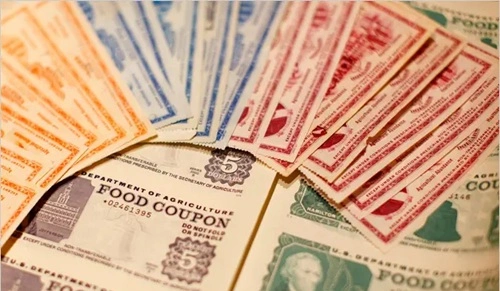The Supplemental Nutrition Assistance Program (SNAP), commonly known as food stamps, helps millions of low-income Americans afford groceries. However, when an overpayment occurs—meaning you received more benefits than you were legally entitled to the government takes it seriously. While not every overpayment leads to criminal prosecution, certain cases can result in criminal charges and even jail time.
So, can you go to jail for food stamp overpayment? The answer depends on why the overpayment happened—whether it was an honest mistake or an act of intentional fraud. Let’s break down how food stamp overpayments happen, what penalties apply, and when jail becomes a possibility.

1. Understanding Food Stamp Overpayment
An overpayment happens when the SNAP agency gives a recipient more benefits than they are eligible to receive. This can occur for a variety of reasons, including:
- Administrative error: A mistake by the agency, such as miscalculating income or benefits.
- Client error: You forgot to report a change in income, household size, or employment.
- Fraud (Intentional Program Violation): You deliberately provided false information to receive extra benefits.
Federal law requires that any overpayment—no matter how it happened—must be repaid. But whether it leads to criminal charges or jail depends on intent.
2. When an Overpayment Becomes a Crime
Most food stamp overpayments are civil matters, handled through repayment plans, benefit reductions, or wage garnishment. But if investigators believe the overpayment was intentional, it can become a criminal case under both state and federal law.
Here’s how the government classifies violations:
A. Unintentional Overpayment (No Jail)
If the overpayment was due to an error or misunderstanding, it’s not a crime. The agency will:
- Send you a notice of overpayment, explaining the amount owed.
- Allow you to repay voluntarily or deduct a portion from future SNAP benefits.
- Possibly charge interest or administrative fees.
In these cases, there’s no jail time, but failing to repay may affect future eligibility or lead to collection actions.
B. Intentional Program Violation (Possible Jail)
If you knowingly gave false information or failed to report changes to keep receiving benefits, you can be charged with an Intentional Program Violation (IPV) or even welfare fraud.
Common examples include:
- Lying about income, employment, or household members.
- Using someone else’s SNAP card.
- Selling or trading SNAP benefits for cash or goods.
These are criminal offenses, punishable under 7 U.S.C. § 2024 (federal food stamp fraud law) and various state fraud statutes.
3. Penalties for Food Stamp Fraud
Penalties depend on the amount of overpayment and the severity of the fraud.
Federal Penalties:
Under federal law (7 U.S.C. § 2024):
- Fraud involving less than $100 can result in up to 6 months in jail and a $5,000 fine.
- Fraud involving more than $100 can lead to up to 5 years in federal prison and fines up to $10,000.
- Repeat offenders may be permanently disqualified from SNAP.
State Penalties:
Each state enforces its own laws for welfare or food stamp fraud. For instance:
- Florida: Food stamp fraud over $200 is a third-degree felony, punishable by up to 5 years in prison.
- California: Fraud under $950 is a misdemeanor, but over that amount becomes a felony with up to 3 years in jail.
- Texas: Fraud over $2,500 can result in 2 to 10 years in prison.
In addition to criminal penalties, those convicted must repay all overpaid benefits and may be barred from receiving future SNAP assistance.
4. Civil vs. Criminal Consequences
It’s important to understand the difference between civil recovery and criminal prosecution.
- Civil recovery happens when the overpayment was accidental. You’ll owe money, but you won’t face criminal charges.
- Criminal prosecution occurs when there’s evidence of intent to defraud. Prosecutors must prove you knowingly provided false information or concealed facts to receive benefits.
Even if your case starts as a civil overpayment, it can escalate to a criminal investigation if the agency suspects fraud—especially if the amount is large or you ignored repayment demands.
5. What To Do If You Receive an Overpayment Notice
If you receive a letter stating that you were overpaid SNAP benefits:
1. Read it carefully. It will explain the amount owed and why.
2. Respond promptly. Ignoring the notice can lead to collections or prosecution.
3. Request a hearing if you disagree with the overpayment or believe it was the agency’s fault.
4. Consult an attorney, especially if you’re accused of intentional fraud. A lawyer can help you negotiate repayment or defend against criminal charges.
Never lie or provide false documents during an investigation—it will only make matters worse.
Final Thoughts
If the overpayment was accidental or caused by agency error, you’ll likely just need to repay the excess benefits. However, if investigators determine you intentionally misled the SNAP program to receive extra aid, you could face criminal charges, fines, and even prison time.
The best approach is honesty and cooperation. Report all income and household changes promptly, review your benefit notices, and seek legal advice if you receive an overpayment letter. Taking responsibility early can prevent a simple mistake from turning into a criminal case.

Our dedicated team gathers information from all the reliable sources to make the law accessible and understandable for everyone. We provide the latest legal news stories from across the country, delivered straight to you.
